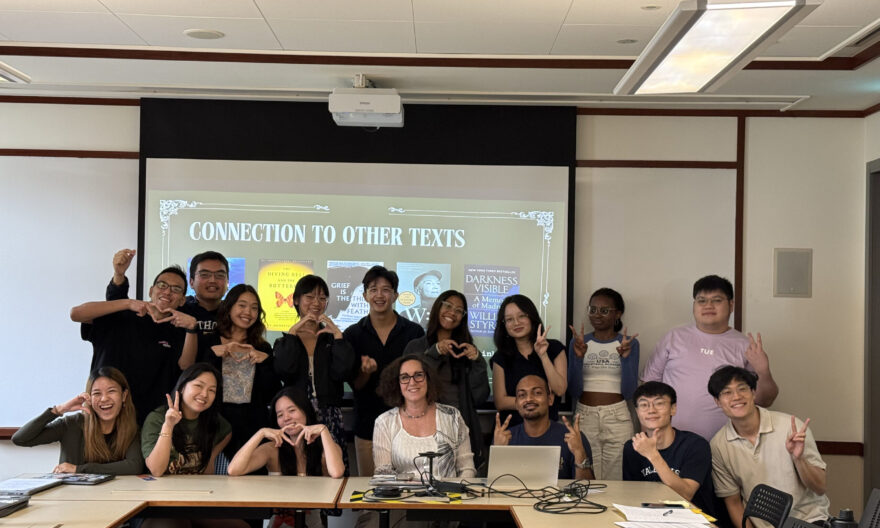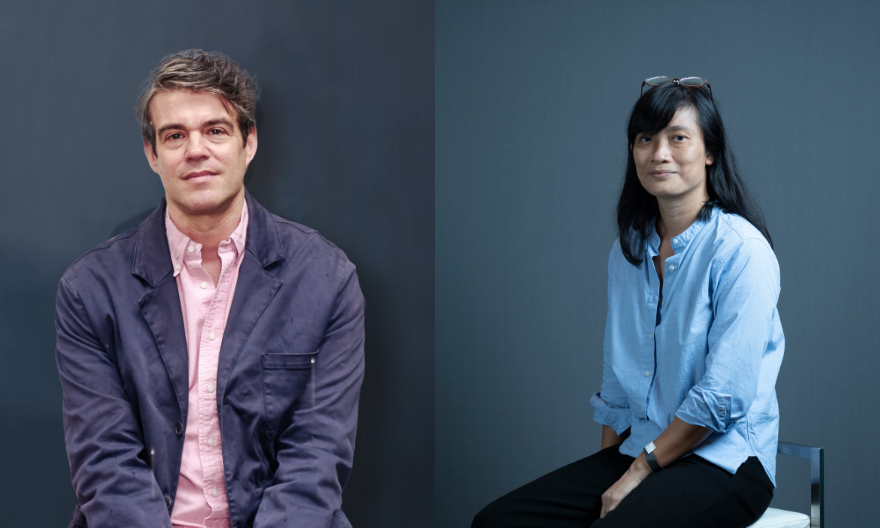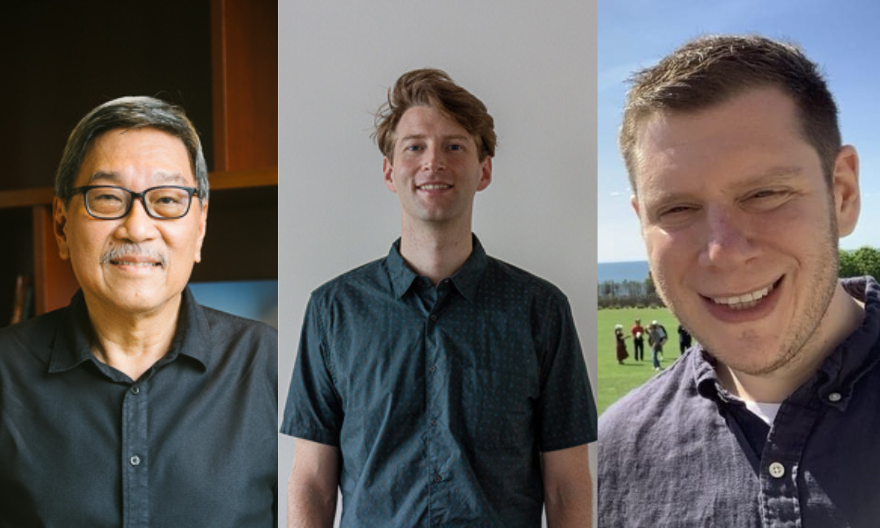Capstone projects spotlight Yale-NUS students’ interdisciplinary interests
Final-year students benefit from close faculty engagement and a broad-based education
Capstone projects are an integral part of the Yale-NUS experience. Completed in the final year, they are often a reflection of Yale-NUS students’ broad, interdisciplinary research interests, and a synthesis of what students learned from the College’s curriculum, research work with professors and experiential learning opportunities such as study abroad or attachments.
Freya Lalani’s (Class of 2022) capstone project bridges two different academic disciplines — psychology and life sciences — to explore the effects of oxytocin on appetite regulation. The basis of the capstone was inspired by research on oxytocin she had conducted as a research assistant in her second year with Assistant Professor of Social Sciences (Psychology) Jean Liu. It also synthesises research Freya had conducted under the supervision of Assistant Professor of Science (Neuroscience) Ajay Mathuru on genetically modified zebrafish.
 Freya Lalani conducting experiments in a lab. Image provided by Freya.
Freya Lalani conducting experiments in a lab. Image provided by Freya.
For Freya, the experience of carrying out an interdisciplinary capstone project proved to be challenging at times as it had “a really steep learning curve” due to the vastly different experimentation processes for psychology and life sciences. Diverging from a more conventional Psychology capstone project, which would typically gather data from human participants, Freya analysed existing psychological research on the topic, and ran experiments and collected data from genetically modified zebrafish in Asst Prof Mathuru’s lab.
“I had never worked in a life science lab before. It was a big commitment especially in terms of time. I was in the lab twice a week for both semesters, including recess weeks. However, it was very rewarding. I felt like I was making a genuine contribution to the field,” Freya shared.
Mathematical, Computational and Statistical Sciences (MCS) major Lucy Xinyu Zhu’s (Class of 2022) capstone project briefly enabled her to travel through time and study the statistical methods used in numismatics (the study of coins), which contributes to the understanding of ancient economies. Using estimation methods borrowed from microbial diversity research, Lucy investigated coin production during the reign of Roman emperor Nero. In particular, she aimed to estimate the number of coin dies (metallic pieces used to mint coins) from datasets provided by Associate Professor of Humanities (History) Ernst Emanuel Mayer.
 Seated third from right, Lucy Xinyu Zhu with some MCS majors from her graduating class. Image provided by Lucy.
Seated third from right, Lucy Xinyu Zhu with some MCS majors from her graduating class. Image provided by Lucy.
On the decision to pursue an interdisciplinary capstone, Lucy attributes it to her propensity towards a variety of interests. While she had not taken any history classes at Yale-NUS prior to her capstone, she had encountered the problem from her capstone supervisor and found it interesting. Lucy shared that she was open to exploring new avenues: “As the topic was new to me, I felt that I would not be bored with it, as opposed to spending all my time solving equations or coding. It also inspired me to take a class about Ancient Rome”.
Lucy credits the support and guidance from her capstone supervisor Assistant Professor of Science (Mathematical and Computational Science) Andreas Heinecke, whom she describes as “an integral part” of her MCS journey and someone who is “like a good friend” to her. Lucy was able to benefit greatly from Asst Prof Heinecke’s expertise during her capstone journey, especially in areas she did not expect, such as mathematical writing.
“My capstone made me realise the difficulty of mathematical writing, which made me a lot more appreciative of Asst Prof Heinecke’s class lecture notes in the past, which are really detailed and well-written. His tips and tricks helped me when I was in the process of writing my capstone,” Lucy explained.
Philosophy major Simren Sambhi (Class of 2022) was also able to draw on interdisciplinary skills when writing her capstone project, which explores free will and determinism in the Bhagavad Gita. Simren has had a long affinity with her capstone topic, first encountering the text through Politics and Philosophical Thought (PPT), a course from the Yale-NUS Common Curriculum. Her interest in the text was further sparked by a Historical Immersion course about the Bhagavad Gita in the 20th century, taught by Assistant Professor in Humanities (Philosophy) Malcolm Keating. He would later become her capstone supervisor.
 Simren Sambhi at her capstone presentation on the Bhagavad Gita. Image provided by Simren.
Simren Sambhi at her capstone presentation on the Bhagavad Gita. Image provided by Simren.
As a Global Antiquities minor, Simren had the opportunity to learn Sanskrit in her second year. Her knowledge of the classical South Asian language proved to be especially helpful during her capstone process, particularly when analysing translations of the Bhagavad Gita.
“Some translations tend to be more liberal or loose with certain terms, which could be problematic when using it for a philosophy capstone because it is imprecise. On the other hand, being overly accurate can lead to clunkiness. Being able to read Sanskrit allowed me to determine the fidelity of the translation to the text and that was really helpful,” she elaborated.
Although learning Sanskrit and the capstone process were challenging, Simren found that the opportunity to make use of all her skills and interdisciplinary knowledge was extremely rewarding. Reflecting on her four years at Yale-NUS and her capstone project, Simren remarked that “it was really hard, but if [she] could, [she] would do it all over again”.




